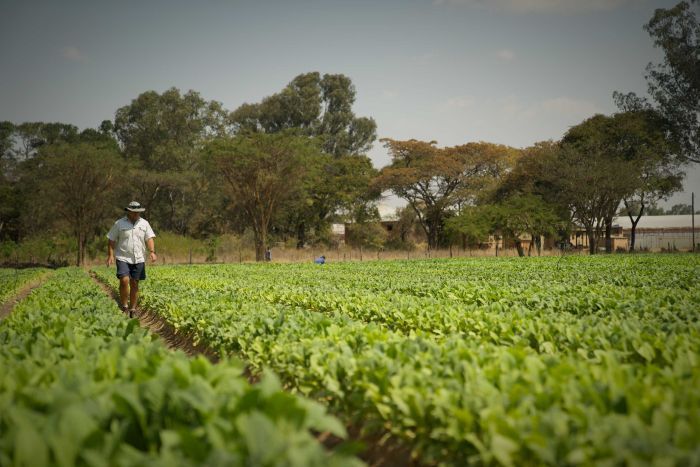The Zimbabwean government has announced plans to allocate an initial $20 million this month to compensate both foreign white farmers and local Black farmers who lost their land during the controversial farm invasions that occurred under former President Robert Mugabe’s regime in the early 2000s. This decision was revealed by Finance Minister Mthuli Ncube on Friday and marks a significant step towards reviving the country’s struggling agricultural sector and addressing past injustices.
The compensation forms part of a broader series of measures outlined in Zimbabwe’s 2024 budget aimed at restoring the agricultural industry, which was once a cornerstone of the nation’s economy. The agricultural sector faced a catastrophic decline following Mugabe’s implementation of land reform policies in 2000, which involved the seizure of highly productive farms, primarily owned by white commercial farmers. These farms had been taken from Black Zimbabweans during the colonial era, leading to a complex and painful legacy that continues to impact the country today.
The current compensation plan targets a diverse group of victims, including foreign farmers from countries such as Belgium and Germany, as well as 400 Black Zimbabweans who also lost their properties in the land seizures. This initiative is part of the government’s effort to make amends for the arbitrary and often chaotic land appropriations that disproportionately benefited those affiliated with the ruling Zimbabwe African National Union-Patriotic Front (Zanu-PF) party.
In 2020, a more extensive $3.5 billion compensation scheme was announced to benefit around 4,000 white Zimbabwean farmers, but financial constraints have hindered the realization of these funds. President Emmerson Mnangagwa, who succeeded Mugabe in a 2017 coup, has been actively working to mend relationships with Western governments in a bid to resolve Zimbabwe’s substantial foreign debt and rejuvenate its economy. However, the elections held last year, which were criticized by observers for not being free or fair, have posed significant challenges in regaining donor confidence.
Ncube expressed optimism about the ongoing dialogue aimed at clearing Zimbabwe’s arrears, stating, “The dialogue process is working and will help us in clearing our arrears eventually.” Zimbabwe has faced isolation from the global financial system for over two decades, a situation that has been exacerbated by its history of defaulting on loans and has deterred potential assistance from international donors.
The country is now pursuing an International Monetary Fund (IMF) staff-monitored program as a critical first step towards debt relief. Ncube confirmed that an IMF team is expected to visit Harare in the next two weeks to facilitate discussions. He emphasized the importance of the program, stating, “A staff-monitored IMF programme is necessary to help us clear our debt arrears, which are an albatross around our economy.”
Zimbabwe’s total foreign debt stands at approximately $12 billion, owed to various international bodies, including the World Bank, the African Development Bank (AfDB), 16 Paris Club members, and other private lenders. The government’s efforts to address compensation and revive the economy reflect its commitment to rectify past mistakes and restore confidence in Zimbabwe’s financial stability.



